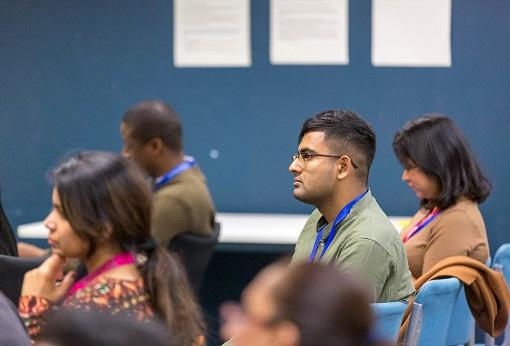
Nobody can deny that racism is an issue in the UK’s Voluntary, Community and Social Enterprise (VCSE) sector.
Whilst we live in a more progressive and self-aware society than ever before, the sector is not immune to conscious and unconscious bias, white privilege, racist organisational structures, and a lack of diversity amongst staff and trustees. The social media campaign #CharitySoWhite, and a range of major reports last year, drew attention to the growing need for sector racism not to be brushed under the carpet.
Bristol’s VCSE sector needs to address this; racism should be examined by every local organisation on a regular basis, but we can also help each other push for diversity, inclusion and equality across the city, be allies, and learn from each other’s successes.
Sector insight into racism
Speakers at last week’s Civil Society event, Race to the Top: Dismantling Racism in the Charity Sector, shared their insight on the lack of racial equality, with a range of suggestions to drive change.
The discussion, chaired by Derek A Bardowell, included points on senior leadership, philanthropy, white privilege, how to be an ally, and priorities for funders.
To see more highlights from the event, click here for a useful Twitter thread by Martha Awojobi, Corporate Partnerships Senior Executive of Refuge, and co-organiser of #CharitySoWhite.
Racial diversity and inclusion in Bristol’s VCSE sector
So, what can we do to achieve racial equality here in Bristol? Voscur teamed up with the University of Bristol, Student Hubs and Burgess Salmon, as part of the Student Hubs Social Innovation Programme, to conduct a pilot study on race inequalities in Bristol’s VCSE sector.
The study was prompted by the current imbalance between equalities-based data collection in the VCSE sector, versus the public and private sector. Each year, Bristol City Council produces a data product that gives a picture of race equality in the city from the perspective of public and private sector organisations. Voscur Chief Executive Sandra Meadows proposed the need to include VCSE data to help produce a more accurate picture for the city.
Voscur and the researchers also gave respondents the opportunity to ask for support with race equality in their organisation, such as requests for training courses or resources; 78% of respondents asked for support in this area.
Of the organisations surveyed:
They were also asked consider any work their organisation currently does to promote racial equality. We were pleased to see a range of initiatives, including advertising in publications for BAME readers, using racially diverse imagery in promotions and social media, targeting BAME communities for volunteering, and equalities training for board members.
We look forward to launching a full study across the entire city’s VCSE sector in due course.
How Voscur can help your organisation tackle racism